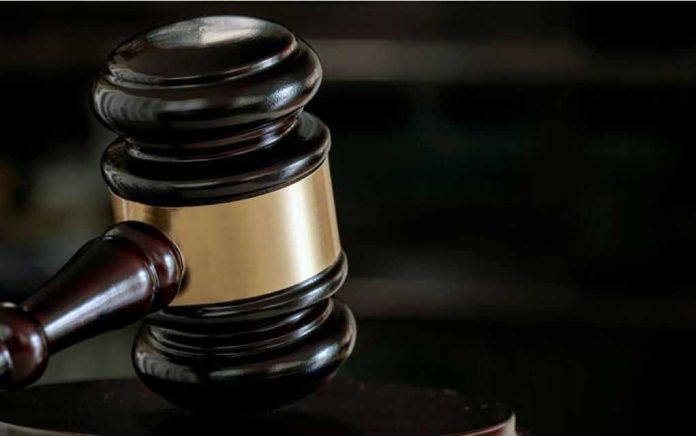
Buckle up folks, because the Department of Justice has filed a misconduct complaint against Chief Judge James Boasberg, accusing him of making improper comments about President Trump’s deportation policies.
At a Glance
- The DOJ alleges Judge Boasberg made inappropriate public comments about the Trump administration’s deportation policy.
- The complaint seeks Boasberg’s removal from a key deportation case involving Venezuelan nationals.
- This move signifies escalating tensions between the judiciary and executive branch.
- Chief Justice John Roberts has weighed in on the matter, defending judicial independence.
DOJ Targets Judge Over Comments
The DOJ, spearheaded by Attorney General Pam Bondi, filed a formal misconduct complaint against Chief Judge James Boasberg of the U.S. District Court for the District of Columbia. This rare move highlights the rising tension between the Trump administration and the judiciary. The complaint accuses Boasberg of overstepping his bounds by publicly criticizing the administration’s deportation policies, particularly concerning Venezuelan nationals. The DOJ argues that Boasberg’s comments could undermine public confidence in the judiciary’s impartiality, demanding his removal from a critical deportation case.
Boasberg’s order to halt deportation flights of Venezuelan men to El Salvador has been a point of contention. He cited due process concerns, but the Trump administration, determined to enforce its immigration policies, invoked the Alien Enemies Act to justify its actions. The clash reached a boiling point when Boasberg suggested that the administration’s defiance of court orders could lead to a constitutional crisis. The DOJ’s complaint, filed in late July 2025, marks an unprecedented step in challenging a judge’s conduct over such comments.
Executive vs. Judicial Authority
This escalating conflict sheds light on the broader struggle between executive authority and judicial oversight. The Trump administration has never been one to shy away from confronting judicial decisions that it views as obstacles to its policy goals. By filing this complaint, the DOJ is pushing back against what it perceives as judicial overreach. Boasberg, appointed by President George W. Bush, has found himself at the center of a legal and political storm, with calls from President Trump for his impeachment ringing loud.
This situation underscores the delicate balance of powers in the United States. The judiciary, traditionally seen as a check on executive overreach, is facing increased scrutiny and challenges. Chief Justice John Roberts, while defending the independence of the judiciary, has stated that impeachment is not an appropriate response to judicial rulings—an assertion that seeks to maintain the integrity of judicial processes amidst political turmoil.
Implications for Immigration Policy
The implications of this conflict are far-reaching, particularly for U.S. immigration policy. The immediate effect is a disruption in ongoing deportation cases, with Venezuelan deportees and immigrant communities caught in the crossfire. Legal experts warn that the DOJ’s action could set a precedent for executive challenges to judicial authority, potentially chilling judicial independence in politically sensitive cases.
In the long run, this may erode trust between the branches of government, undermining public confidence in the judiciary’s ability to act as an impartial arbiter. The legal community watches closely as the situation unfolds, with a keen eye on how it might reshape the landscape of judicial conduct and executive-judicial relations in the United States.
Broader Political and Social Impact
This DOJ move is more than just another chapter in the ongoing saga of U.S. immigration politics. It reflects heightened political polarization and the deepening divide over the separation of powers. The public debate over the role of the judiciary in checking executive actions is likely to intensify, drawing in voices from across the political spectrum.
For conservatives, this situation underscores the need to defend constitutional principles and the rule of law against perceived judicial activism. The DOJ’s complaint is seen as a necessary step to ensure that judges remain impartial and refrain from making politically charged statements that could influence public perception and policy implementation.




